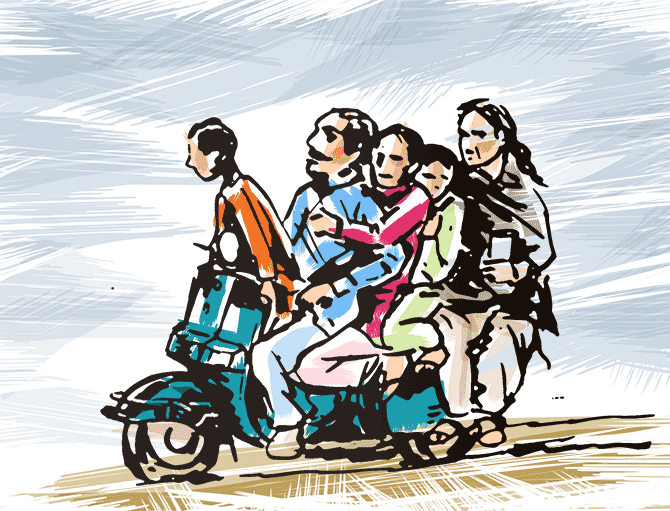The 21st Law Commission said the special status given to the entity of HUF was a 'so-called gift by the British', who could not comprehend the complex socioeconomic structure of Indian families.
'Now, this status is being used for the evasion of tax only,' it said.

Along with the repeal of Article 370 and the construction of a Ram temple in Ayodhya, both of which the Narendra Modi government has accomplished, the adoption of a uniform civil code (UCC) has been the third prong of the Bharatiya Janata Party's three-point core agenda since the late 1980s.
The 22nd Law Commission has initiated a fresh consultation process on the UCC by seeking views from stakeholders, including the public and recognised religious organisations.
Despite the 21st Law Commission's report submitted in August 2018 stating that a UCC was 'neither necessary nor desirable at this stage', the BJP has kept up the pressure on the issue.
The state governments it runs, such as Uttarakhand and Gujarat, set up committees in 2022 to frame their respective draft UCCs.
The Uttarakhand UCC has nearly been finalised and will promote gender equality, retired Supreme Court judge Ranjana Prakash Desai, who heads the committee, told a public consultation in the national capital.
For the last couple of years, BJP MPs have routinely moved private member Bills in nearly every Parliament session, demanding that the Centre also set up a committee to frame a UCC.
In 2022, the Centre said in its affidavit in the Supreme Court on the UCC that citizens of different religions and denominations follow separate property and marital laws, which is 'an affront to the nation's unity'.
The new effort by the 22nd Law Commission will look at personal laws relating to marriage, divorce, maintenance, custody and guardianship of children, inheritance and succession, and adoption.
But it will also have to wade through some of the recommendations of the 21st Law Commission's report, such as doing away with the concept of the Hindu Undivided Family (HUF).
In its consultation paper titled Reform of Family Law, the Commission said in August 2018 that 'justifying the institution on the grounds of deep-rooted sentiments at the cost of the country's revenues may not be judicious'.
It quoted former chief commissioner of income-tax T C A Ramanujam as saying that 'the government carries out any amount of amendment to the Hindu law without looking into the revenue loss caused by the recognition of HUF as a separate taxable entity. HUF may be a boon to the tax-paying Hindu. But it is a bane to government revenues.'
The 21st Law Commission said the special status given to the entity of HUF was a 'so-called gift by the British', who could not comprehend the complex socioeconomic structure of the Indian families.
'Now, this status is being used for the evasion of tax only,' it said.
The 21st Law Commission recommended making it easier for couples to get divorced, giving women a more equitable share of the property at the time of divorce, abolition of polygamy among Muslims, gender-neutral adoption laws, reforming Muslim inheritance law, and giving equal rights to children born out of live-in relationships.
The 21st Law Commission, headed by retired Justice B S Chauhan, said that while the diversity of Indian culture can and should be celebrated, specific groups or weaker sections of society must not be 'dis-privileged' in the process.
'Resolution of this conflict does not mean the abolition of all differences. This Commission has, therefore, dealt with laws that are discriminatory rather than providing a UCC, which is neither necessary nor desirable at this stage. Most countries are now moving towards recognition of difference, and the mere existence of difference does not imply discrimination but is indicative of a robust democracy,' it said.
It stressed that several social evils like sati, child marriage, and triple talaq take refuge as religious customs, and to seek their protection under the law as 'religion' would be a grave folly.
The Janata Dal-United stressed the need to build consensus on the UCC through substantive consultations with all religions.
The BJP attributed the Congress opposition to succumbing to pressure from 'fundamentalists' and vote-bank politics.
The Congress said the BJP was attempting to distract from real issues.
Feature Presentation: Aslam Hunani/Rediff.com












 © 2025
© 2025